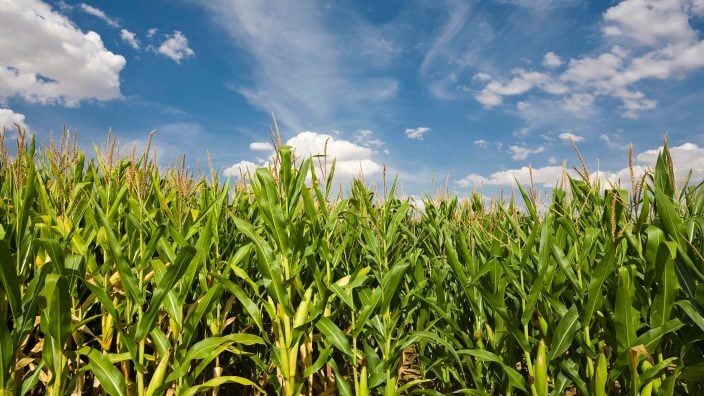Growing our Generation: Grassroots advocacy
Ohio Farm Bureau provides opportunities, platforms and resources to help you develop your voice in the industry and give farmers a seat at the table with leaders and legislators.
Read MoreOhio Farm Bureau recently provided comments concerning the U.S. EPA's proposed rule regarding proposed Renewable Volume Obligations for 2021 and 2022, as well as EPA’s proposal to retroactively adjust the already-finalized RVO for 2020.
The Ohio Farm Bureau Federation recently provided comments concerning the U.S. Environmental Protection Agency’s proposed rule regarding proposed Renewable Volume Obligations (RVO) for 2021 and 2022, as well as EPA’s proposal to retroactively adjust the already-finalized RVO for 2020.
The letter pointed out how renewable fuels have been a tremendous success story for the country and the rural economy and how the Renewable Fuel Standard has reduced the country’s dependence on foreign crude oil, reduced air pollution, increased farm incomes and provided good-paying jobs in rural America.
“Following the implementation of the RFS2 in 2007, the U.S. experienced tremendous growth within the agricultural sector,” the letter read. “U.S. farmers responded to these new market signals by expanding crop production by 3 billion to 4 billion bushels of corn and over 1 billion bushels of soybeans, crops that are used to produce corn-based ethanol and soybean oil biodiesel.”
The letter asserted that with the exception of the proposal to reopen the final 2020 standards, Farm Bureau believes the proposed rule represents an important and long-awaited step toward restoring order, integrity and stability to the RFS. It also noted that Farm Bureau supports the proposed volumes for 2022 for all categories of renewable fuel, and specifically commends EPA for proposing to set the implied requirement for conventional renewable fuels at the statutory level of 15 billion gallons.
“We also support EPA’s proposal to account for projected exempt volumes from small refineries when setting RVO percentages, and Farm Bureau agrees with EPA that, ‘in the interest of transparency,’ the agency should release basic information about entities seeking exemptions from RFS compliance,” the letter read. “While we understand EPA’s proposed denial of 65 pending small refinery exemption petitions is not the subject of this docket, we also want to voice our strong support for that decision.”
As for the 2021 RVO and the proposed revision to the 2020 RVO, the letter addresses serious concerns Ohio Farm Bureau has about EPA’s questionable use of its “reset” authority.
“While we understand EPA has a statutory obligation to consider resetting future RFS volumes when certain thresholds are met, it does not appear that Congress intended for EPA to use its reset authority for the purpose of retroactively addressing unforeseen market anomalies like COVID or weather-related disasters”
The letter underlined that EPA’s current proposals for 2020 and 2021 show a lack of appreciation for farmers who did not stop producing for the U.S. in the midst of the pandemic and would only add to the uncertainty now facing farmers and biofuel producers.
“These proposed requirements undercut the growth of homegrown biofuels and hold back our efforts to revitalize rural communities, create clean energy jobs and reduce emissions of the transportation sector. Now more than ever, it’s vital that EPA set strong biofuel requirements as soon as possible.”
Read the full letter to the EPA regarding the agency’s RFS proposal.


Ohio Farm Bureau provides opportunities, platforms and resources to help you develop your voice in the industry and give farmers a seat at the table with leaders and legislators.
Read More

The emergency fuel waiver to allow the sale of summer gasoline blends containing 15% ethanol will lengthen the period during which Americans can continue buying E15 from June 1 to Sept. 15.
Read More

ODA will enroll 500,000 acres into the program for a two-week sign-up period, beginning April 22, 2024, through May 6, 2024. Contact local SWCD offices to apply.
Read More

The survey results establish a baseline of adoption for various farming practices in the Sandusky watershed.
Read More

Pike County Farm Bureau hosted a Public Policy Breakfast on Thursday, April 11, 2024 at the Government Center.
Read More

Jackson-Vinton Farm Bureau hosted a Public Policy Breakfast on Wednesday, March 27, 2024 at the Courthouse in Jackson.
Read More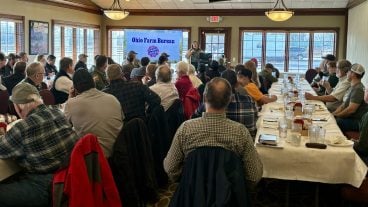
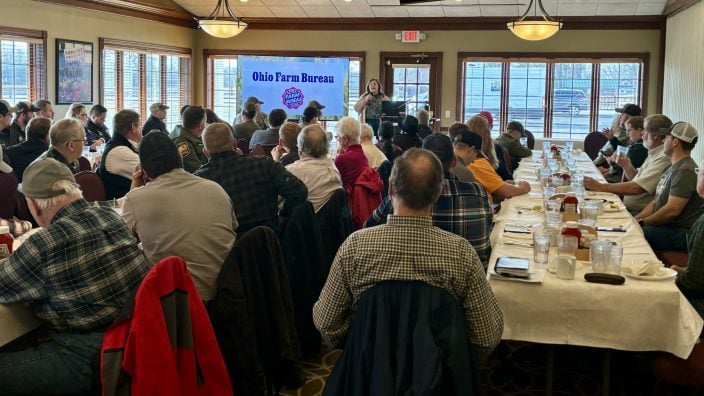
Speaker topics included Rules of the Road: Trucking laws and regulations to keep you moving and addressing issues in transport as a farm operation to a for hire carrier.
Read More
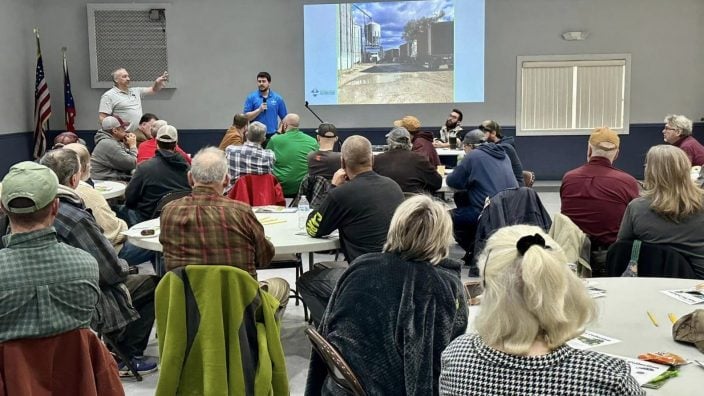
Farm Bureau community partners presented information on forestry, CAUV, taxes, conservation practices and succession planning.
Read More

State Senate Candidate and current State Rep. Susan Manchester, Rep. Tim Barhorst and Rep. Angie King have been invited as our legislative guests April 1.
Read More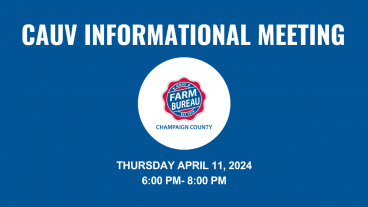
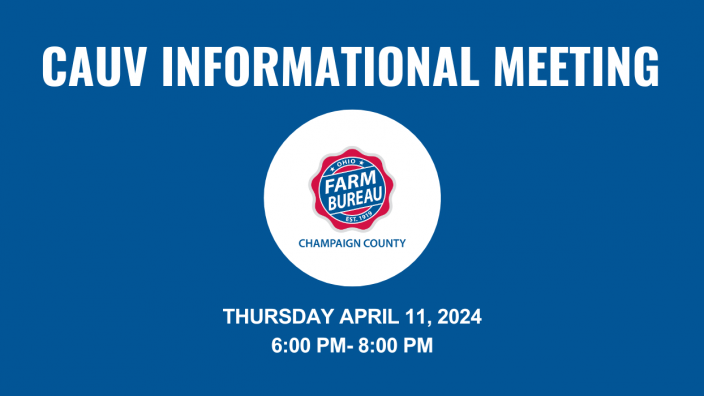
Leah Hetrick, with the Ohio Farm Bureau, will discuss the recent increases in CAUV values, information to help you understand the property tax system, and an update on legislative action.
Read More